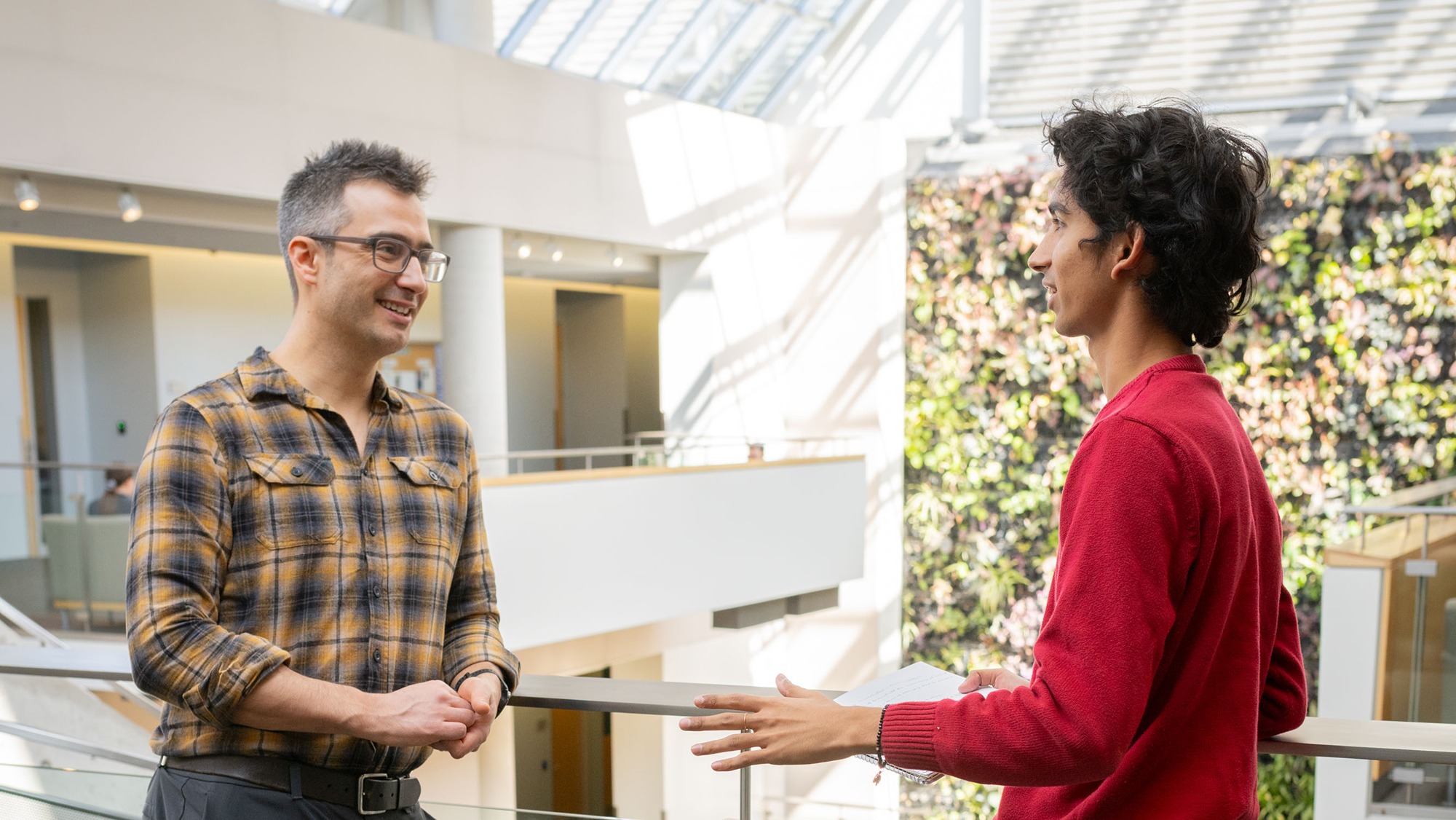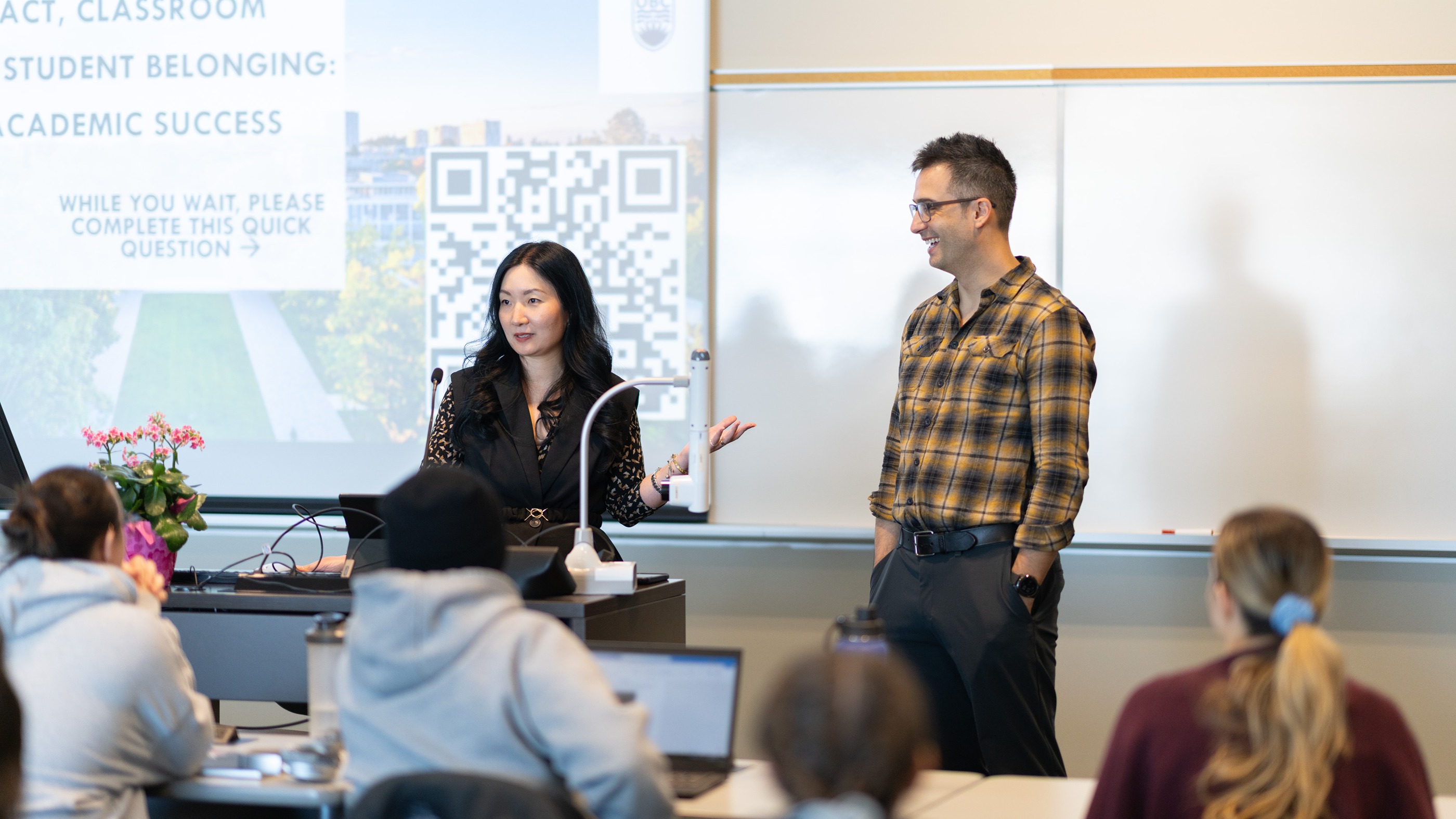Written by: Gareth Correia, second-year Psychology student

I had the privilege of attending a fascinating guest lecture by University of British Columbia’s Dr. Simon Lolliot on March 27 about how faculty contact, classroom connections, and student belonging are interconnected, and how they can pave the pathways to academic success.
We were first introduced to the question of whether cultivating a sense of belonging plays a role in being a successful student. To answer this, we first looked at how this sense of belonging branched out into social and academic belonging. Very briefly, the former looks into our sense of positive relations with others and exists as a fundamental human need, while the latter speaks of where we feel we compare to our peers when it comes to possessing the academic skills needed to thrive in the educational realm.
These two concepts resonated with me because I came to Guelph-Humber as an international student from Dubai, United Arab Emirates two years ago and experienced the same issue with developing a proper sense of academic belongingness back home because of the highly competitive scholastic environment I was raised in. It was quite a significant culture shock realizing the difference in work-life balance compared to students here that work part-time, having been raised in a culture that values academic achievement over working.

With regard to the social belongingness aspect, I also had the pleasure of sharing a conversation with Dr. Lolliot about my own experience of feeling a little “out of place” with the new culture I’ve been acclimating to, how I find myself existing as an awkward little puzzle piece that doesn’t fit into the culture I’ve moved into, or the one I grew up in. We spoke about the transitional phase a lot of individuals from immigrant backgrounds go through during this time, and how social belongingness may fluctuate, influencing academic and life satisfaction positively, as time progresses.
Dr. Lolliot also spoke about some of the studies he’s done with university students to replicate previous findings and test out some new theoretical models. We delved into dispositional and situational attributions, and how students who lack social belonging usually tend to align with more dispositional attributions, blaming themselves for their poor performance in scholarly settings.
Lastly, we concluded that professors play an important role in creating a welcoming environment that fosters classroom connectedness, and this, in turn, plays a role in students’ health, how comfortable they feel working with each other, their academic belonging, and their grades, to name a few. I asked him about how these results with university students and professors translate into a high-school environment, especially with first-generation immigrant students and their subsequently different cultural definitions of social belonging. There are a lot of implications for these findings and their variations over age and culture.
Overall, this talk was extremely informative and quite relatable since social belongings play such a fundamental role in our lives, making me more appreciative of the people I have around me and the connections I continue to make in my academic journey.
Written by: Gareth Correia, second-year Psychology student

